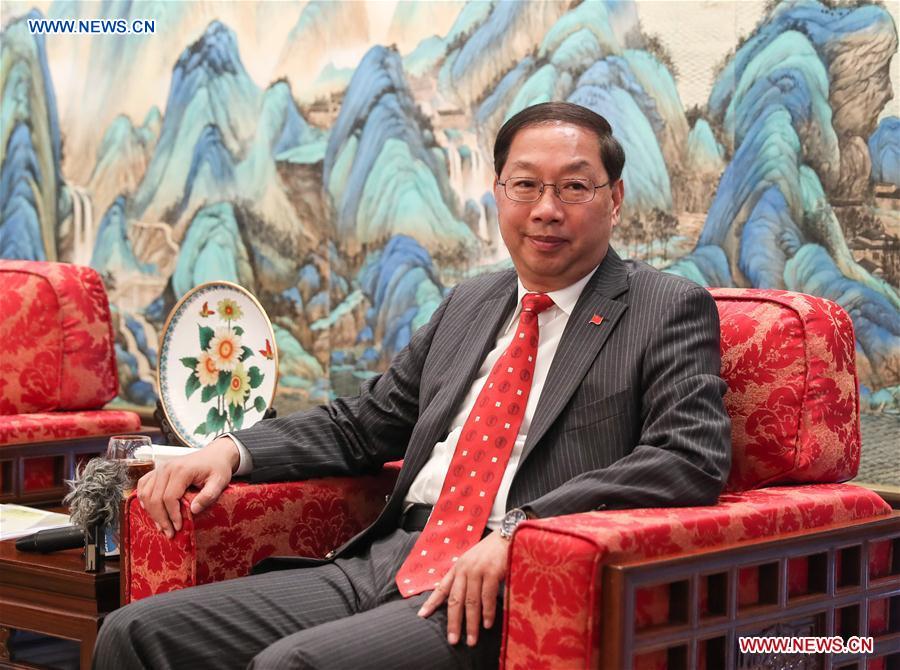 ?
?
Chinese Ambassador to Germany Shi Mingde receives an interview with Xinhua at the Chinese Embassy in Berlin, capital of Germany, May 29, 2017. China and Germany can forge ahead and upgrade their existing cooperation in the new international circumstances, Shi said in the interview. (Xinhua/Shan Yuqi)
BERLIN, May 31 (Xinhua) -- China and Germany can forge ahead and upgrade their existing cooperation in the new international circumstances, Chinese ambassador to Germany Shi Mingde said in a recent interview with Xinhua.
Shi noted that the year 2017 marks the 45th anniversary of the establishment of diplomatic relations between China and Germany.
Chinese Premier Li Keqiang kicks off his visit to Germany and Belgium on Wednesday. During the three-day visit, he will meet with European leaders in an effort to enhance mutual political trust and expand pragmatic cooperation between the two sides, to inject fresh impetus into China's relations with the two countries.
During the years, great changes have taken place in the two countries, as Germany rose from a divided state into a unified and top European country. Meanwhile China, from a poor and backward country, has become the second largest economy and a responsible world power, Shi said.
Ties between the two countries have weathered global upheavals and sustained a growing momentum, bringing tangible benefits to peoples of the two countries, enhancing the development of China-EU relationship and peace and stability of the world, Shi said.
He called the ties a "genuine, win-win, all-around strategic partnership."
Shi said that China-Germany ties play a leading and stabilizing role in the China-EU relationship when Europe is facing a complex situation with great uncertainties brewing in the world.
On scientific innovation collaboration, Shi called on governmental departments in charge of science, enterprises, universities and research institutes of the two countries to show the great foresight to innovate ways of cooperation and deepen cooperation so as to facilitate economic restructuring and industrial progress.
German enterprises have the edge in science and technology but face a limited size of market. Nevertheless, if they take advantage of China's market, talents, capitals and policies, there will be infinite possibilities, he said.
Talking on the threats of protectionism, Shi called on China and the EU to join hands in the fight against it and promote free trade.
Shi reiterated China's stance on facilitating free trade and investment and voiced hope that Germany can also continue to wield its influence in this respect.
According to Chinese Ministry of Commerce, China invested over 2.9 billion U.S. dollars in Germany in 2016, a 258.6-percent increase year-on-year. In the same year, Germany pumped 392 projects in China with an investment volume of 2.71 billion dollars.
Ministries of China and Germany set up a dialogue mechanism in 2015 and signed a trove of memorandums of understanding and cooperative agreements to promote bilateral exchanges in intelligent manufacturing.
The two countries have also established work teams to cooperate in rule-making and criteria-setting for intelligent manufacturing and Industry 4.0.



